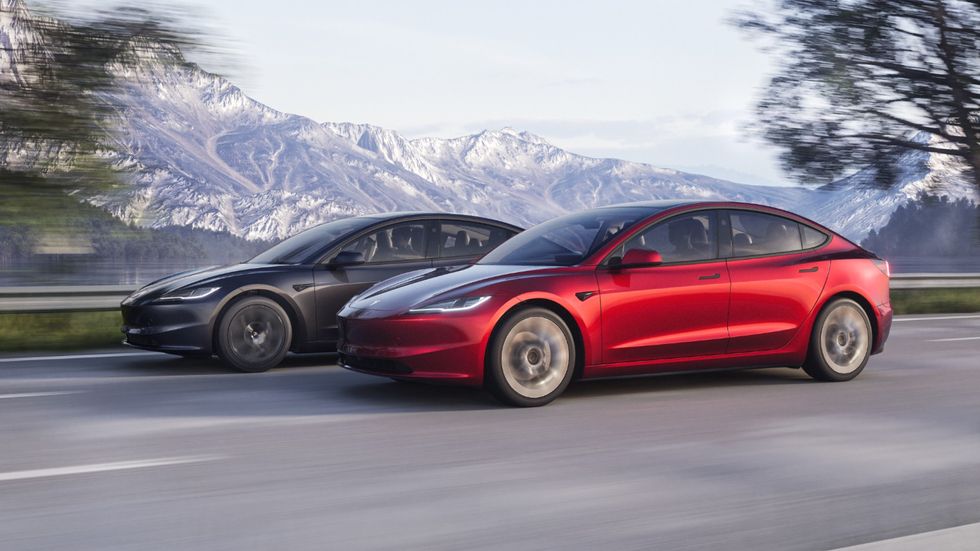August saw enough electric car sales to meet lofty Government goals as research shows a dramatic drop in the market share of petrol vehicles, hinting that a major shift could be around the corner.
The data shows that no additional growth is needed in the share of electric vehicles for the rest of the year to meet the terms of the Zero Emission Vehicle mandate.
This outlines how manufacturers are required to have 22 per cent of total sales come from zero emission vehicles by the end of the year, followed by an 80 per cent target in 2030 and 100 per cent in 2035.
New AutoMotive’s latest Electric Car Count reported that sales of electric vehicles reached 23 per cent of the new vehicle market share, with sales up 10 per cent compared to the same time last year.
Do you have a story you’d like to share? Get in touch by emailingmotoring@gbnews.uk
Petrol vehicle sales have dropped in recent months
PA
Hybrid vehicles surged to a 35 per cent market share in July, with petrol clinging on to the top of the list with a 36 per cent share. The data suggests that hybrids could surpass
New AutoMotive stated that petrol dominance “teeters on the brink” as drivers look to invest in cleaner forms of transport. More than 19,000 electric vehicles (cars, vans, motorbikes and HGVs) were sold in August.
Ben Nelmes, CEO of New AutoMotive, said: “It is great to see continued growth in the number of people opting for an electric car.
“Electric cars are much cheaper to run, nicer to drive and they are key to hitting net zero, so it is great to see more and more people discovering the benefits of going electric.
“The data also show a significant fall in sales of purely petrol and diesel cars as consumers shun older, polluting technologies.”
The expert suggested that this could be followed up by the new Labour Government to follow through with its manifesto pledge to reinstate the 2030 deadline to ban the sale of new petrol and diesel vehicles.
He also highlighted how the “predicted flood of Chinese electric cars is still barely a trickle” following strong action from manufacturers and the introduction of large tariffs by the European Union.
Manufacturers are making progress with electric vehicle sales despite a gloomy outlook from industry experts. BMW, Mercedes and Stellantis-owned brands were found to be boosting EV numbers.
Almost one-third of BMWs sold in the last 12 months are battery electric, while a quarter of Mercedes vehicles do not have a tailpipe, meaning the brands now have the second and fourth biggest market shares of EVs respectively.
While Tesla is still the most dominant brand for electric vehicles in the UK with more than 43,300 registrations, it has seen a huge drop in sales compared to the same time last year.
Its percentage of electric vehicles in the UK has dropped seven per cent, down to 14 per cent, although this can also be as a result of positive action from other brands becoming more popular.
The Elon Musk-led brand is also the only major brand to meet the 100 per cent benchmark within the ZEV mandate, therefore having the largest amount of credits to trade and sell to other manufacturers if they cannot meet the ZEV target.
LATEST DEVELOPMENTS:

Tesla remains the UK’s most popular electric vehicle manufacturer
TESLA
This could be particularly useful for brands which have a small percentage of electric vehicles in their total sales, meaning they could fail to meet ZEV targets.
This includes Renault (8.7 per cent), Toyota (5.7 per cent), Ford (3.5 per cent), Seat (zero per cent) and Land Rover (zero per cent).

